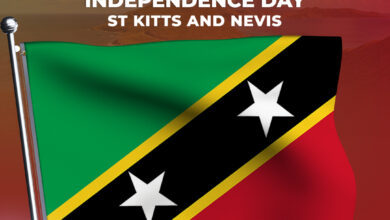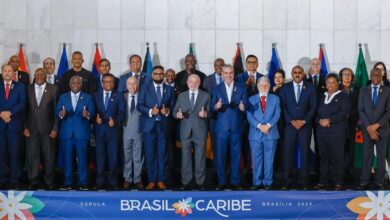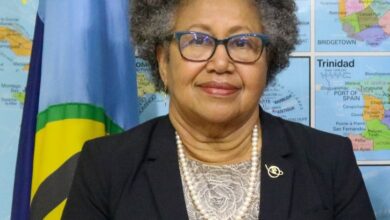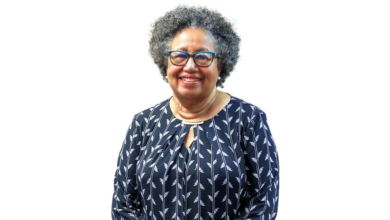|
(CARICOM Secretariat, Turkeyen, Greater Georgetown, Guyana) Member States of the Caribbean Community (CARICOM) have been called upon to revamp the Pan Caribbean Partnership against HIV and AIDS (PANCAP) by establishing the Partnership as the Caribbean’s leader in promoting human rights and developing legislation to protect the rights of those persons living with and affected by HIV and AIDS. The call was made by Dr. Antonie Gabriel Thimothé, Directeur Général, Minister of Public Health and Population of Haiti during his special presentation at the opening ceremony of the PANCAP’s 11th Annual General Meeting, which took place on 18 November 2011 in The Bahamas under the theme “Enhancing Country Ownership and Sustainability.” “Stigma and discrimination can hinder efforts to fight the AIDS epidemic, the Ministry of Health of Haiti strongly supports the idea that countries in the region, through PANCAP, work together to address those issues by adopting a regional legislation that can enforce the rights of people living with HIV and facilitate their integration into society,” Dr. Thimothé said. He added that the contribution of PANCAP in parliamentarian advocacy, resource mobilization and promotion of universal access continues to be valuable. However, he noted that there was a need for CARICOM Member States to adopt a more holistic approach, including economic, social and cultural to ensure ownership and sustainability of the national response to HIV and AIDS. Dr. Hubert Minnis, Minister of Health of The Bahamas said harmonisation is critical to the new direction of the Partnership and sustainability of its programmes. “We are still faced with a number of challenges. One such challenge is sustainability of current HIV and AIDS programmes within the Caribbean. All efforts must be made in the Region to sustain HIV programmes in all aspects – in prevention, care and treatment. This will require the commitment of governments and people’s of the Caribbean,” he said. He explained that the primacy of prevention efforts could not be overemphasized and the Region ran the risk of irrelevant and sub-optimal programming if it did not consistently and accurately characterise the epidemic, its drivers and trends. Dr. Minnis further added that in this time of reduced resources for HIV and AIDS, improved coordination and harmonisation of efforts had become even more important. “In these times of scarcity, we should seriously consider multi-sectoral involvement, strengthening health systems, integration of HIV interventions and decentralization of services into conventional and non-conventional settings. Equally important is the collection of strategic information coupled with monitoring and evaluation,” Dr. Minnis said. He urged PANCAP to concentrate on new developing strategies, strengthening existing successful ones and accelerating the pace of the Caribbean’s fight against the epidemic. Mr. Julius Timothy, Minister of Health of Dominica said the extent to which countries could create enabling environments, increase access by key populations and slow new HIV infections required the support, solidarity and the creative energies of PANCAP. He advised that in a time of economic recession, the Caribbean must ensure that it shaped international investments in the Region’s own image to better own the outcomes. “National success says something about the Region much like national shortcomings. We must therefore be prepared to support each other as countries,” Mr. Timothy said. |
BahamasHaitiHealthHIV/AIDSPress Releases





